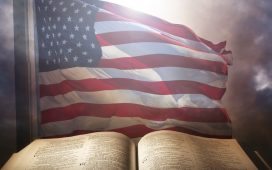And, of course, invocations of Pope Francis. A decade ago it was a commonplace to regard liberal Catholicism as a tradition in decline. Its period of maximal influence, the late 1960s and 1970s, had been an era of institutional crisis for the church, which gave way to the conservative pontificates of John Paul II and Benedict XVI. Conservative Catholics felt that liberal ideas had been tried and failed, liberal Catholics felt that they had been suppressed.
But then Francis gave the liberal tendency new life, reopening controversies that conservatives assumed were closed and tilting the Vatican toward cooperation with the liberal establishment and away from associations with conservatism.
The papacy does not issue political endorsements, but there seems little doubt that many figures in Francis’ inner circle welcome a Biden presidency. When the American bishops’ statement on his inauguration included a stern critique of his position on abortion, there was apparent pushback from the Vatican and explicit pushback from the most Francis-aligned of the American cardinals. So the conservative Catholics who spent the election year arguing that Biden isn’t a Catholic in good standing find themselves (not for the first time) in tacit conflict with their pope.
That conflict belongs to the internal drama of Catholicism. In the internal drama of America, though, liberal Catholicism is an interesting candidate to claim the religious center, to fill the Mainline’s vanished role.
If you wanted to make a case for its prospects and potential influence, you would emphasize three distinctive liberal-Catholic qualities: an abiding institutionalism, in contrast to the pure dissolving individualism of so much American religion; an increasingly multiethnic character, which matches our increasingly diverse republic; and a fervent inclusivity, an anxiety that nobody should feel discriminated against or turned away.
This inclusivity means that liberal Catholicism sometimes seems to capture the universalist aspirations of the church better than its conservative and traditionalist subcultures. The latter are supposed to be for everybody, but at the moment they tend to appeal to distinctive personality types (he said, looking in the mirror) while remaining somewhat alien to the normal run of Americans — with “normal” lately meaning not just anyone who doubts certain of the church’s harder teachings but anyone who doubts the wisdom of a vote for Donald Trump.
On the other hand, liberal Catholicism sometimes achieves its feeling of universality by simply claiming for itself the whole Catholic-influenced world — sure, he’s no longer a practicing Catholic, but did you know that Dr. Anthony Fauci was educated by Jesuits? — without regard to whether that influence actually amounts to much more than a vague spirituality, a generic humanitarianism.




